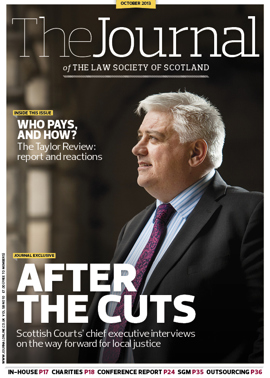Expenses up to date?

The entire UK tax regime for employee benefits and expenses should be reviewed, the Office of Tax Simplification (OTS) has said in its interim report, published in August, into the tax system that applies to employee benefits and expenses.
The OTS has said that the current “piecemeal” framework is complex and should be brought up to date. “We would recommend a full policy review of the whole benefits and expenses system to re-establish some general principles and ensure these are in line with current employment practices and Government policies”, the report states.
Review overdue
The report highlights that there has not been a policy review of this area since the 1970s, and much has changed since then. Furthermore, the PAYE system itself was designed in the mid-1940s when employees worked in factories or offices, and the self-employed were tradesmen or professionals. The working world has changed significantly since then, particularly with IR35, zero-hours contracts and portfolio careers, all of which fundamentally challenge the idea that someone is either an employee or self-employed.
Tax rules that apply to travel and subsistence expenses, accommodation benefits and termination payments should be the subject of further study, according to the OTS. It also recommends that the administrative procedures established by HM Revenue & Customs should be studied in more depth, with a view to them being simplified.
Different procedures could be set up for small and large companies to follow; and indeed “There may be a case for different tax rules for large and small businesses, rather than the current ‘one size fits all’ approach”, the OTS says. It proposes further investigation into how the system can be made to work better for business generally and, in particular, for small businesses, considering not only the application of the underlying tax rules but also HMRC’s administration of the system.
P11D issues
One area of particular concern raised by the OTS is in relation to the P11D form that employers must complete at the end of each tax year to notify HMRC of the benefits and expenses payments they have made to staff earning more than £8,500.
“Feedback from our meetings indicates that the obligation to file a separate form in respect of each employee or director involves excessive administration for employers, particularly as the P11D is so complicated”, the OTS reports. “Its layout and references to different types of benefits and expenses make it difficult to complete and hard for employees to understand. Employees are often confused as to why a P11D is even needed, for example in salary sacrifice schemes where, from the employees’ point of view, they should not be given forms that suggest they have to pay tax on benefits which they have ‘bought’.”
“Quick win” solutions
The OTS believes there are a number of “quick win” solutions that could be implemented to improve the employment tax framework. Among the potential solutions, “voluntary payrolling of benefits” could replace form-based reporting, and exemptions from tax on benefits to reward staff for long service should be extended.
In addition, businesses should be able to resolve “straightforward employee tax issues” with HMRC directly, where individual staff members have consented.
“Difficulties are exacerbated by a general failure for there to be effective communication between the employer, the employee and HMRC”, the report adds. “When the employee queries his code, HMRC often directs him back to his employer, rather than taking ownership and entering into a three-way dialogue in order to collectively resolve the issue. Some employers wanted to be able to sort out simple issues on behalf of employees, for example ringing up HMRC to ask them to issue a form P87 to allow the employee to claim expenses, or to report a benefit that needed a coding change.”
The OTS is due to make final proposals on reforming the benefits and expenses tax regime in a report to the Chancellor before his next Budget.
- The interim report is available at www.gov.uk/government/uploads/system/uploads/attachment_data/file/227088/ots_employee_benefits_interim_report.pdf
In this issue
- Jewel in the crown, or just red tape?
- In the public interest
- Sweeney: room for manoeuvre
- Lost in translation?
- EU Fundamental Rights Agency: the missing link?
- Reading for pleasure
- Opinion column: Stephen Gold
- Book reviews
- Profile
- President's column
- FM officially opens new MBH
- Feeling the squeeze
- Litigation: a numbers game
- Mythbusting! The in-house IT top ten
- Charities and the changing legal landscape
- Heir finding: the sensitive side
- Sign up to boost charity giving
- Law, but not as we know it
- All the permutations
- The truth, the whole truth...
- Shale gas: a complex process
- Expenses up to date?
- Scottish Solicitors' Discipline Tribunal
- Room at the top?
- Here comes the flood?
- SGM decision kills "sep rep"
- Outsourcing: the straight and narrow
- How not to win business: a guide for professionals
- Properly engaged?
- Ask Ash
- Sep rep: what now?
- From the Brussels office
- Law reform roundup






